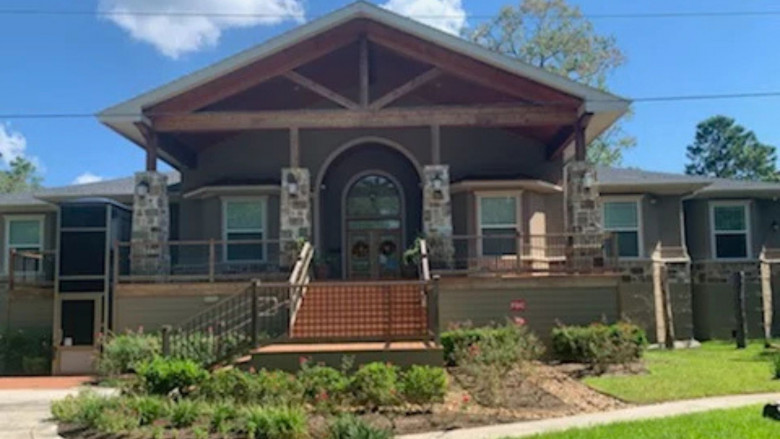views

Whether it's stepping outside without warning, getting lost in familiar places, or becoming agitated and disoriented, these moments can be heart-stopping for families.
That’s why so many families turn to professional Alzheimer's care in the Dallas area. Memory care communities are designed to keep residents safe without making them feel locked in or restricted. It’s all about creating a sense of freedom while still keeping an eye out.
Let’s explore how these communities manage wandering and confusion, and how they provide Alzheimer’s caregiver support when the journey gets overwhelming.
Wandering Is More Common Than You Think
Up to 60% of people living with dementia will wander at some point. It’s not always because they’re trying to leave. Sometimes they’re looking for a familiar face, trying to get to work (even if they’re retired), or simply restless and unsure what they need.
But the risk is real.
Wandering can lead to injury, exposure, or even dangerous encounters. For families caring for someone at home, it means constant vigilance locking doors, setting alarms, staying awake at night. It’s not sustainable long-term.
What Makes Memory Care Safer?
Modern memory care communities are built with dementia in mind. They go far beyond just housing—every detail is designed to support cognition, reduce confusion, and promote safety.
1. Secured Entrances and Exits
Unlike traditional senior living, memory care homes have secured doors that prevent residents from accidentally walking out. But here’s the thing, they don’t feel like prisons. These communities use discreet locks and door alerts, so residents still feel at ease.
2. Monitored Outdoor Spaces
Getting outside is important for mental health, but it has to be safe. Many memory care communities feature enclosed gardens, patios, and walking paths. This way, residents can enjoy fresh air and sunlight, without the risk of wandering off.
3. Motion and Alert Sensors
Some communities use motion detectors and wearable tracking devices to help monitor resident movement, especially during the night. These gentle tools don’t invade privacy but do give staff quick insight when someone needs help or is awake and pacing.
Creating a Distraction-Free, Soothing Environment
When someone is disoriented, even small things can become overwhelming. That’s why top-tier Alzheimers care in the Dallas area focuses heavily on design and routine.
Simple floor plans: Clear, open layouts help reduce confusion and make it easier to navigate.
Visual cues: Colour-coded hallways, memory boxes outside doors, and personalized décor help residents recognize where they are.
Soft lighting: Bright lights and harsh shadows can feel disorienting. Gentle lighting supports mood and orientation.
This attention to detail does more than prevent accidents; it helps residents feel calm and at home.
Staff Trained for the Unexpected
Having staff nearby is one thing. Having trained caregivers who truly understand dementia—that’s another level of support.
In high-quality communities, team members know the early signs of agitation or confusion. They’re trained in redirection techniques, meaning they can gently guide someone away from unsafe situations without causing distress.
Instead of “No, don’t go there,” you might hear, “Let’s check on the garden first” or “Would you like some tea?” These calm, comforting responses help ease tension and build trust.
Nighttime Safety Without Interrupting Sleep
Wandering often happens during the night, when residents wake up disoriented. Instead of over-monitoring and disrupting sleep, memory care homes use smart strategies to keep people safe:
Night lights and motion-activated floor lighting to guide residents if they wake.
Comfort checks to quietly assess if someone is restless or needs help.
Evening routines that support sleep, like herbal teas, calming music, or warm showers.
It’s all about creating a secure yet peaceful night for both residents and their families.
When Caregivers Feel Burnt Out, Support Matters
Caring for a loved one with Alzheimer’s—especially one who wanders—can take a serious toll on caregivers. The constant stress, sleepless nights, and fear of accidents can leave you feeling emotionally and physically drained.
That’s why Alzheimer’s caregiver support is a lifeline.
Whether it’s through support groups, respite care, or just someone to talk to, memory care communities often extend their services beyond residents. They understand that families need help too.
By leaning on a memory care team, caregivers get the relief they need—and their loved ones receive specialized, round-the-clock attention.
Easing the Guilt Around Transitioning to Memory Care
It’s not easy deciding to move a loved one into a memory care facility. Guilt, worry, and fear are all normal. But safety has to come first.
Here’s what many families realize after making the move:
Their loved one is less anxious and more engaged.
They no longer have to live in fear of late-night wandering.
They finally get the sleep and peace of mind they’ve been missing.
A good memory care community doesn’t replace family. It becomes part of the team—helping your loved one live fully and safely, day and night.
Looking for Alzheimer’s Care in the Dallas Area?
Not all memory care homes are the same. If you’re exploring options in the Dallas area, look for a community that:
Specializes in Alzheimer’s and dementia care
Offers secured but welcoming spaces
Provides 24/7 trained support
Emphasizes person-centered care
Welcomes families and offers support services
Most importantly, trust your instincts. Walk through the space, ask about their safety policies, and meet the staff. The right place will feel like home, not just for your loved one, but for you too.
Final Thoughts: Safety with Dignity
Wandering and disorientation are part of the Alzheimer’s journey, but that doesn’t mean your loved one has to live in fear or restriction. Memory care communities are designed to meet these challenges with compassion, safety, and dignity.
With trained staff, smart design, and a warm approach, quality Alzheimer’s care in the Dallas area offers more than supervision; it offers peace of mind.
And if you’re a caregiver feeling overwhelmed, remember this: getting help isn’t giving up. It’s stepping up for both your loved one and yourself.










